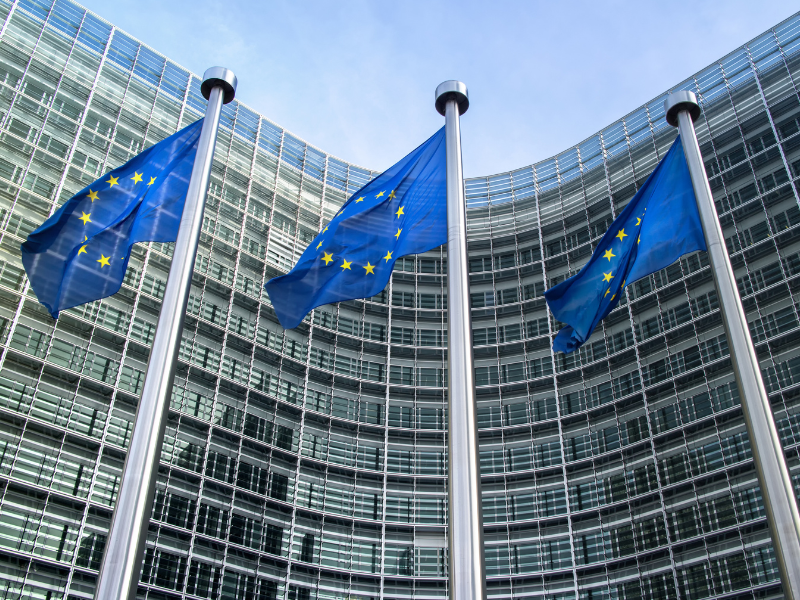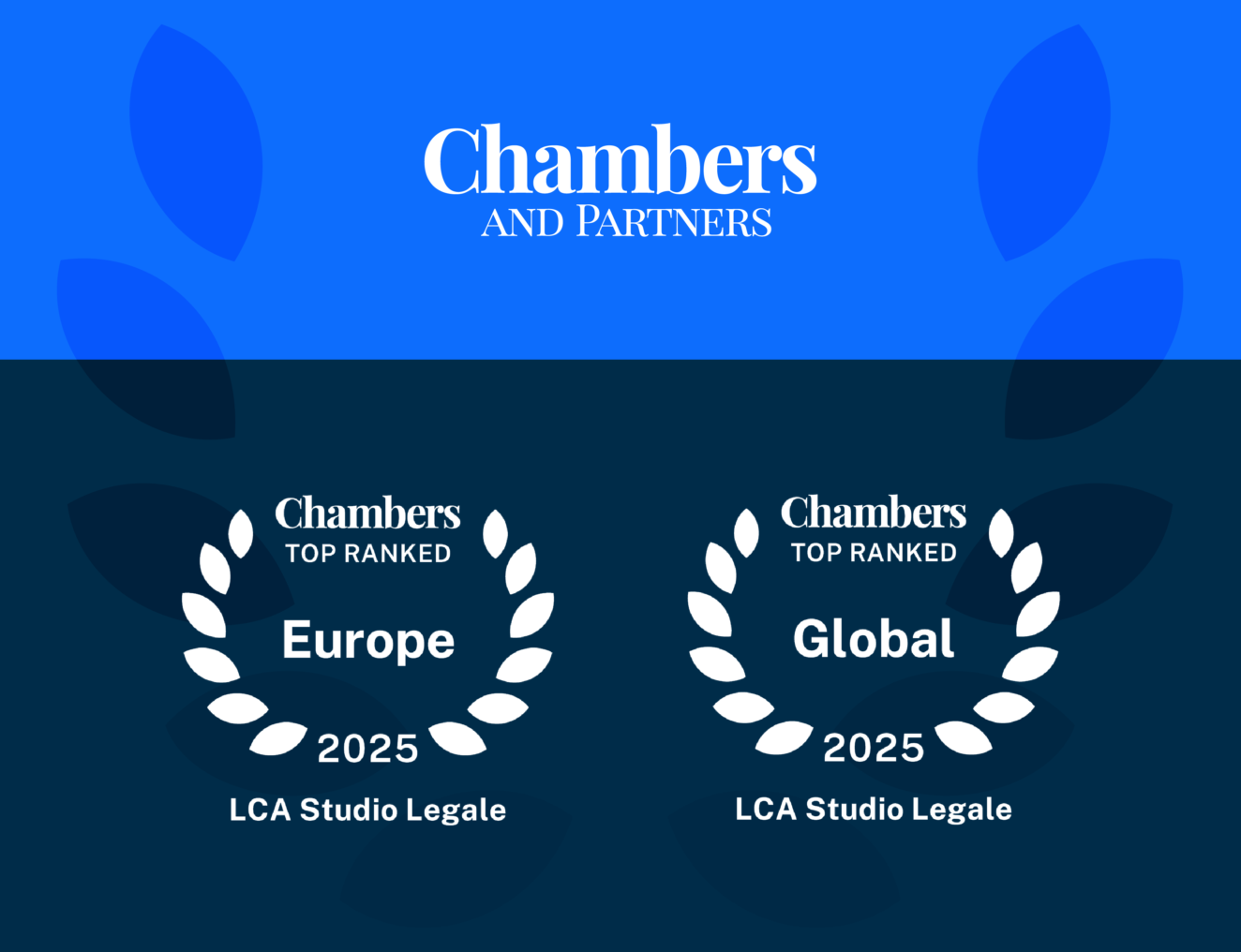On January 12th, 2023, EU Regulation 2022/2560 on foreign subsidies distorting the internal market (the “FSR”) entered into force, with the purpose of addressing distortions of the internal market caused, directly or indirectly, by foreign subsidies granted to companies active in the common market.
This is considered an essential news in the EU regulatory framework, considering that as of today, the European Union had no means to directly contrast distortion of the internal market caused by contributions originating from non-EU States. The FSR will apply starting from July 12th, 2023, and is particularly relevant for companies that intend to be part of a M&A transaction or participate in a public procurement procedure in an EU Member State.
The FSR applies to all foreign subsidies granted in the five years preceding July 12th, 2023, provided that they are still distortive of the internal market on that date, except for subsidies relevant for the notification obligations described below, for which only contributions granted in the last three years are considered. The FSR does not apply to M&A transactions concluded, and contracts awarded, before July 12th, 2023.
On February 6th, 2023, the Commission also started a public consultation on the draft implementing regulation concerning – inter alia – the form, content and procedural details of notifications required by the FRS.
A foreign subsidy in the context of the FRS is understood as a financial contribution which is provided directly or indirectly by a third country and confers a benefit and which is limited to one or more undertakings or industries.
The following examples of financial contribution are provided by the FRS: transfers of funds or liabilities – as capital injections, grants, loans, loan guarantees, fiscal incentives, compensation for operating losses and financial burdens imposed by public authorities, debt forgiveness, debt to equity swaps or rescheduling – the foregoing of revenue otherwise due and the provision or purchase of goods or services.
Furthermore, the financial contribution is deemed distortive of the internal market if it allows the receiving company to improve its competitive position by actually or potentially affecting the competition in the internal market. In this regard, the FSR identifies certain cases in which the distortive nature of the contribution is presumed, and namely if such subsidy:
- is granted to an ailing company;
- is provided in the form of an unlimited guarantee for debts or liabilities of the company;
- is an export financing measure that is not in line with the OECD Arrangement on officially supported export credits;
- directly facilitates a concentration;
- enables the company to submit an unduly advantageous tender on the basis of which the company could be awarded the relevant contract.
Financial contribution not exceeding the overall amount of Euro 4,000,000 over a consecutive period of three years, should be deemed, as a general rule, unlikely to distort the internal market within the meaning of the FSR. Also, subsidies not exceeding the amount provided by the regulation on de minimis aids (Euro 200,000) over a consecutive period of three consecutive years shall not be deemed as distortive. In addition, subsidies aimed at making good the damage caused by natural disasters or exceptional occurrences are not considered as distortive.
The European Commission has the power, on its own initiative, to examine any information on foreign subsidies. Member States and any natural or legal person or association may provide the Commission with information on alleged foreign subsidies distorting the internal market. The Commission has the power to request further information and carry on inspections, even outside the European Union. Based on the information collected, the European Commission may launch an in-depth investigation, following which it may adopt a decision to raise no objection, or accept commitments which are deemed to fully and effectively remedy the distortion, or impose redressive measures. Interim measures may also be imposed. Companies refusing to cooperate may be subject to fines or periodic penalty payments.
A special regime applies to M&A transactions and public procurement procedures.
The FSR provides the Commission with the authority to assess the distortive nature of foreign subsidies received by companies operating in the Union and grants it pervasive powers of investigation and inspection, exercisable under two different regimes:
- the power to examine ex ante certain M&A transactions or tenders submitted in public procurement procedures exceeding the thresholds identified by the FRS, for which are provided a notification and a stand-still obligation on the companies involved. This notification will be mandatory starting from October 12th, 2023;
- the power to conduct ex officio investigations, starting from next July 12th, on all the transactions where the Commission suspects the existence of a foreign subsidy distorting the internal market.
For exercising these powers, the Commission may use any information received, also by Member States or any natural or legal person or association, as well as may request the notification of transactions below the notification thresholds.
The Commission should balance the negative effects and the positive effects . The balancing can lead to the conclusion not to impose redressive measures where the positive effects of the foreign subsidy outweigh its negative effects.
M&A Transactions
For the purposes of the FSR, a concentration shall be deemed to arise where a change of control on a lasting basis results from either of the following: (i) a merger of two or more independent companies; or (ii) the acquisition of direct or indirect control, by a company already controlling one or more companies; or (iii) the creation of a joint venture performing on a lasting basis all the functions of an autonomous economic entity. For the purposes of the FRS, a notifiable concentration shall be deemed to arise where, in a concentration:
- the merging companies, the acquired company or the joint venture generate an aggregate turnover in the Union of at least Euro 500,000,000; and
- the companies involved were granted with combined aggregate financial contributions exceeding Euro 50,000,000 in the three preceding years.
The notification shall be submitted following the execution of the relevant agreement and before the closing of the transaction.
The European Commission conducts a preliminary review and, where appropriate, an in-depth investigation, following which may raise no objection, accept commitments or prohibit the transaction, if the distortive nature is assessed.
If the companies involved implement the transaction in violation of the obligations imposed by the FRS, the Commission may require the companies concerned to restore the situation prevailing prior to the implementation of the concentration or, where that restoration is not possible through dissolution of the concentration, any other measure appropriate to achieve such restoration as far as possible. In addition, the Commission may order any other appropriate measure to ensure that the companies concerned dissolve the concentration or take other restorative measures as required in its decision.
Public Procurement procedure
Regarding public procurement procedures, the FSR applies to foreign subsidies that enable an economic operator to submit a tender that is unduly advantageous in relation to the works, supplies or services concerned. For the purpose thereof, a notifiable foreign financial contribution in a public procurement procedure shall be deemed to arise where:
- the estimated value of the public procurement is at least equal to Euro 250,000,000; and
- the company intending to submit a tender has received foreign contributions equal to at least Euro 4,000,000 over the previous three years.
Where the conditions for the notification of financial contributions are met, economic operators participating in a public procurement procedure shall file the notification to the Commission. In all other cases, economic operators shall list in a declaration all foreign financial contributions received and confirm that the contributions received are not notifiable. Such declarations shall be filed to the contracting authority, that subsequently shares it with the European Commission.
During the preliminary review and the in-depth investigation, all procedural steps in the public procurement procedure may continue, except for the award of the contract. The Commission may decide to raise no objection, accept commitments or prohibit the award of the contract.
Procedure
Upon receipt by the Commission of a notification, the concentration shall not be implemented for a period of 25 working days after that receipt and the procurement procedure for a period of 20 working days. Where the Commission initiates an in-depth investigation within the above terms, the concentration or the tender award shall not be implemented for a period of respectively 90 and 110 working days after the opening of the in-depth investigation. The Commission may decide: (i) to accepts commitments; (ii) not to raise objection; (iii) to prohibit the transaction or the award.
Sanctions
The Commission has the power to impose fines not exceeding 1% of the aggregate turnover of the companies involved in the preceding fiscal year and periodic penalty payments not exceeding 5% of the average daily aggregate turnover of the companies involved in the preceding fiscal year, for each working day of delay, until it submits complete and correct information as required by the Commission, or until it submits to an inspection.
In the event of non-compliance with the obligations under the FSR (e.g. notification obligation and stand-still obligation), the Commission may impose fines not exceeding 10% of the aggregate turnover of the companies involved in the preceding fiscal year.
DOWNLOAD PDF



